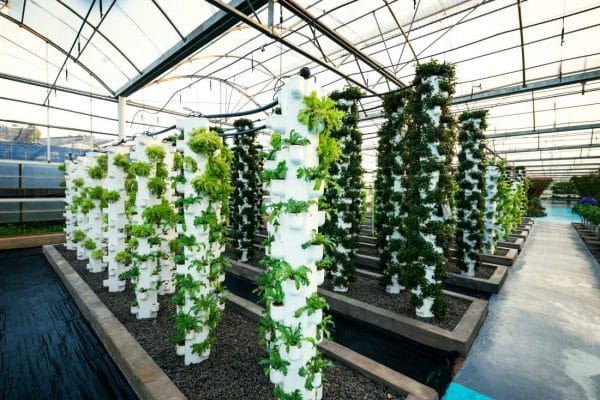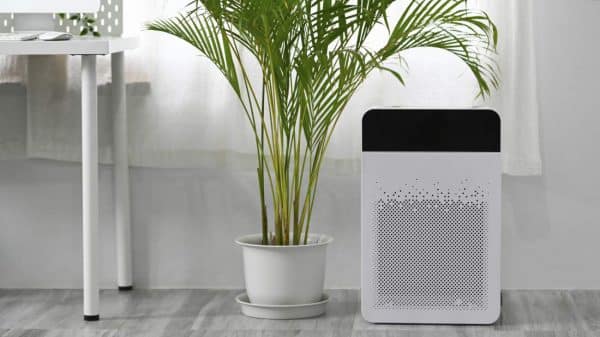From the chemistry occurring as you brew your morning coffee through to the complex scientific models at play when you glance at the weather forecast on your phone, science and continual innovation are embedded in our lives from the moment we wake up to the moment we switch off the lights and hop into bed at the end of the day. Simply put, science is the invisible engine that powers our everyday lives – making things work, keeping us safe, and helping us improve how we live, work, and play.
With National Science Week 2025 running in Australia from August 9th to 17th, it's the perfect time to learn more about all things science and how the advancements in scientific innovation have positively impacted our lives today. We’ll also explore how you can become a modern-day scientist at home, making alterations to your living space that benefit you, your pockets, and the environment. In the home and beyond, here’s how science is shaping the way we live today and into the future.
1. Smart homes - the future is now!
From automation to smart lighting and heating, renewable energy and advanced security systems, science and technology have revolutionised the way we live in our homes. These cutting-edge home improvements are not only increasing our comfort, safety, and convenience, but also reducing energy usage and helping us to save money. Here’s how:

-
Home automation
Home automation uses machine learning to make homes more efficient, responsive, and cost-effective. Systems like smart thermostats and energy monitors learn your habits, can be controlled remotely, automate tasks, and reduce power use, especially when paired with solar or wind energy. It boosts convenience, cuts your costs, and helps create more sustainable living environments.
-
Solar panels and renewable energy
Solar panels utilise science to convert sunlight into clean, cost-efficient electricity through photovoltaic cells. This technology, based on Albert Einstein’s Nobel Prize-winning photoelectric effect, helps reduce our reliance on the grid. When paired with battery storage or other renewable energy sources, solar systems can reduce both your electricity bill and carbon footprint.
-
Green building materials and passive design
Green building and passive design principles harness the power of nature to create comfortable, eco-friendly homes. Building scientist Joseph Lstiburek pioneered sustainable architecture by favouring materials with strong thermal insulation and working with layouts that maximise airflow. These homes are designed to stay warm in winter and cool in summer, with less reliance on additional heating or cooling – lowering your household costs, and minimising our environmental impacts.
-
Air quality sensors and purifiers
Cutting-edge air quality technology detects and removes indoor pollutants, including dust, mould, and harmful volatile organic compounds (VOCs). The sensors identify particles in real-time, while purifiers use ionisation to clean the air. Inspired by the work of geochemist Clair Patterson, this tech improves the air we breathe, reduces allergens, and improves our respiratory health.
-
Smart lighting and circadian rhythms
With so much artificial light in our lives, our body’s internal clock – or circadian rhythm is often subject to a lot of confusion. Smart lighting systems use LED technology to mimic natural light patterns and regulate our sleep-wake cycles. Based on research by circadian and sleep researcher Charles Czeisler, these systems help regulate our sleep, mood, and productivity by syncing indoor light with our natural rhythm. The result? Better quality sleep, more energy, and enhanced productivity throughout the day.
2. Hydroponics and indoor food growing
Hydroponics allows you to grow fresh produce indoors, eliminating the need for messy soil and using nutrient-rich water that feeds your plants directly. This method, pioneered by William Frederick Gericke harnesses water chemistry and plant biology, and is ideal for urban living and small spaces. Allowing you to grow fresh winter food like leafy greens and herbs – even during colder months – in a sustainable way.
3. Wearable wellbeing tech
From smartwatches to rings and phone-based fitness trackers, wearable tech products are becoming increasingly integrated into our everyday lives. We want to know our heart rates, how we slept, and how many steps we’ve done – all in real time. Built on the work of MIT scientist and founder of Affective Computing, Rosalind Picard, these smart wearables utilise biosensors that provide personalised health data, encouraging healthier lifestyles.

4. Waste reduction and recycling science
Recycling, upcycling, and composting are becoming an integral part of the household habits of many, but few understand the science behind these practices. By understanding the material chemistry and decomposition of products (through microbial activity), we can make smarter choices, like choosing compostable packaging and properly sorting our recyclables. Environmental pioneers like Rachel Carson raised awareness of humanity’s impact on nature, helping shrink our landfill impacts.
5. Water conservation and smart water use
From water-efficient tap fixtures to dual-flush toilets and greywater systems, these innovations are based on fluid dynamics and engineering sciences, designed to reduce water usage and waste. Inspired by leaders like John Snow, who linked public health to clean water, today’s advances in water engineering continue to make homes more sustainable and resilient, future-proofing our homes against growing global water shortages.
6. Data science is dictating your Netflix binge and social scroll!
From your Netflix picks to real-time traffic updates on Google Maps, data science (along with complex algorithms) is continually analysing patterns to simplify your life. This field, powered forward by computer scientists like Alan Turing, continues to evolve as machine learning and AI research advances. Whether it’s finding the quickest way home or discovering a new artist on Spotify, the ability to anticipate your needs and personalise your digital world is only moving in one direction.
7. AI and smart household devices
AI and machine learning are transforming home devices into intuitive helpers. Think voice assistants that learn your routines, robotic vacuums that map your space, or predictive energy management systems. AI enables these systems to adapt, learn, and improve over time. With roots in the work of AI pioneers like Geoffrey Hinton, known as the Godfather of AI, and computer scientist Fei-Fei Li, these systems are intuitive and responsive, optimising how your home works and often driving energy efficiency over time.

8. Medical advances are creating and extending life
From vaccines to surgical procedures, diagnostic imaging advances, and IVF, science has revolutionised modern medicine, boosting our life expectancies and treating and managing conditions once considered fatal. Innovations such as heart transplants, immunotherapy, and wearable monitors now help manage diseases, prolong life, and support a better quality of life, to such an extent that we’re now facing an aging population, which presents new challenges for scientists.
For best results, just add science
This National Science Week, take a moment to explore just how much science is shaping your home and your lifestyle. And if it isn’t, now’s the time to embrace it – whether that’s through smart home upgrades, a better understanding of compostable, or getting on the wearable wellbeing tech bandwagon. Making the most of scientific advancements can save you time and money, increase your home's value, and come with health benefits, too. At First National Real Estate, we embrace the science behind research and insights to make smarter decisions, create better marketing campaigns, and deliver personalised service. Whether you’re buying, renting, or investing, we’re here to guide you with the right tools, tech, and local real estate experience every step of the way.
DISCLAIMER
The following advice is of a general nature only and intended as a broad guide. The advice should not be regarded as legal, financial, or real estate advice. You should make your own inquiries and obtain independent professional advice tailored to your specific circumstances before making any legal, financial, or real estate decisions. Click here for full Terms of Use.

